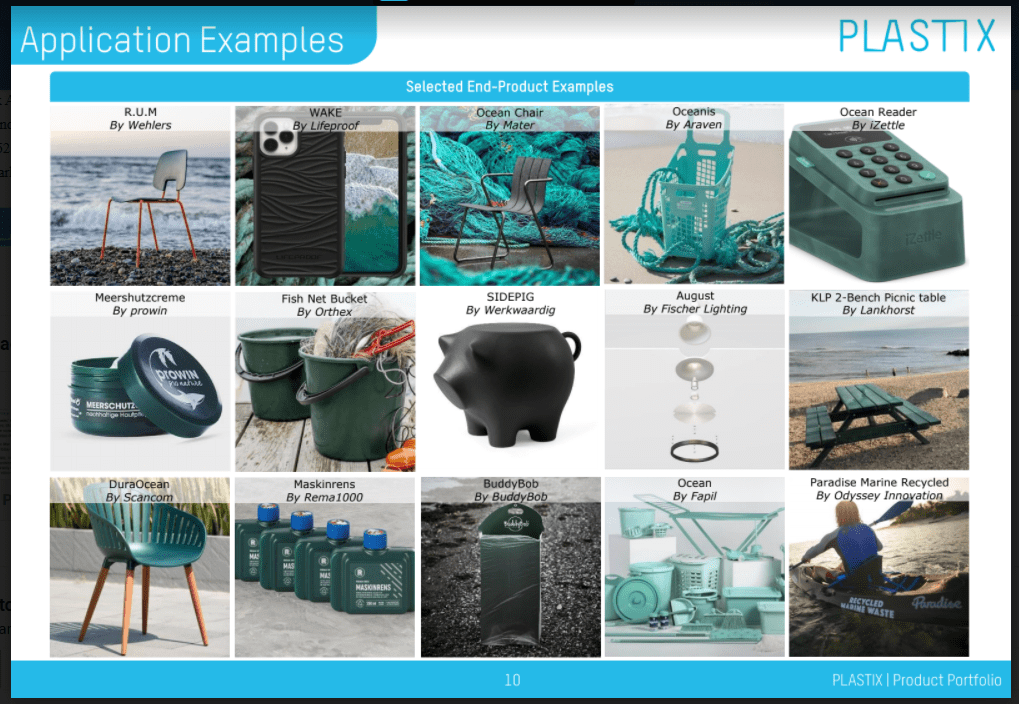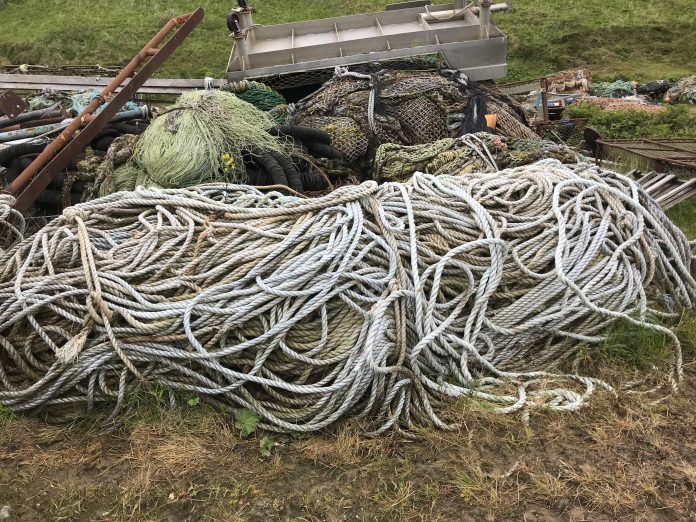Four years after former North Pacific groundfish observer Nicole Baker got inspired to find a way to recycle fishing nets from Unalaska she’s already reached one million pounds of recycled fishing gear and looking for more.
“I heard about this Danish company that was recycling nets … and I thought if they are recycling nets I know where there are a lot of them,” mused Baker, reflecting on the fourth-year anniversary of Net Your Problem, the company she founded and now serves as Pacific Northwest division coordinator and recycler liaison.
“I feel like I am just cracking the ice on what’s available,” Baker said. After focusing mostly on a couple of places in Alaska, including Dutch Harbor, “we have the whole rest of the U.S. to go,” she said.
With the amount of plastic being produced annually on a worldwide basis in the millions of metric tons, “we need a lot of people working on this all over, and we shouldn’t be making this much plastic (anyway),” she said.
Recently Baker and others took apart a trawl fishing net on Bainbridge Island, Washington, and split it into its components, and now, working with the NOAA Fisheries’ Northwest Fisheries Science Center and Net Systems, they are collaborating on out how to recycle all of the components. It is important to be able to send a uniform, single type of plastic to processors, so they can easily make a high-quality product for later use in manufacturing, she wrote, in a news release on that project.
End of life of plastics is a global issue that all countries are struggling with, and as more attention is focused on fishing gear in the ocean, NYP hopes to share its research publicly available to other entities considering similar ventures in recycling, reuse and manufacture with plastics previously used in the fishing industry.

Baker currently works as a research scientist at the University of Washington in Seattle, while working to expand her recycling efforts to more fishing ports to make Net Your Problem a full-time effort.
“I’m trying to run this as a business and make sure people get paid for their time,” she said. “If people want to start recycling programs they should email or call me and we’ll make it happen.”
NYP also announced in its latest newsletter that the company has received funding for its proposal to the NOAA Marine Debris Program entitled “Salish Synergy” to divert beach plastic collected from the coast of Washington to the Ocean Legacy Foundation, a nonprofit based in North Vancouver, British Columbia, whose goal is to give plastic waste an economic value and stimulate efforts to keep plastic out of the oceans.
Working with CoastSavers, an alliance of partners and volunteers who aim to keep Washington State beaches clear of marine debris, and the National Marine Sanctuary Founding NYP plans to sort certain plastics, warehouse them and then transport them to Ocean Legacy Foundation, which has been working for several years to commercialize a recycling process for marine debris.
Now that we have a recycling option or some plastids collected from the shoreline, NYP will begin to offer broker services for this type of plastic, Baker noted in NYP’s latest newsletter. Part of the grant from the NOAA Marine Debris Program also involves making a product from the recycled plastic, an effort that NYP plans to work on with Western Washington University’s Plastics and Composites Engineering Program and Washington SeaGrant, the newsletter notes.






